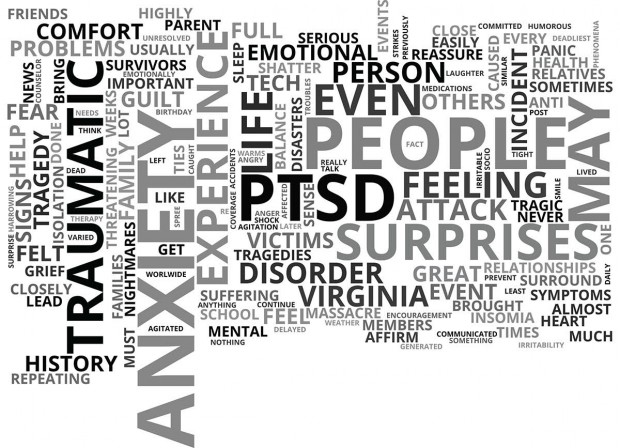Sunday Mornings with Rania: The Road to Recovery

It rained last week. And it was kind of a big deal.
As I sat in my office at Crime Stoppers of Houston and watched the clouds go from light to dark with sheets of water falling over the city skyline, I couldn’t help but sense the tightening of my back and the quickening of my heart. Living in Houston, it rains often but this rain, this hard, foggy, post-Harvey rain . . . rain that led to “area flooding” alerts . . . had an unexpected effect on me.
But it wasn’t just me.
My phone pinged as tweet after tweet indicated others were feeling the same way. I stopped to think of the phenomenon of emotion taking place in offices around the city, from those in high-rises to mid-rises to strip malls; from school teachers, to house moms to business executives; rich or poor, young or old, black, white or other – I think what at the beginning of the summer may have been an unnoticeable hard “shower” was now, post-Harvey, causing many of us to stop in our tracks and survey for potential risks and dangers.
There has been a shift in our thinking but it makes sense. Harvey came in like a slow, consistent, persistent and unwanted terror. He lingered and his rains tormented six million Houstonians without discrimination. Together, we flooded, we were afraid, we suffered loss, we cried, we were uncertain, we saw the images but we loved, we hugged, we gave, we carried, we rose….
All that said, as we move forward, can we take a moment to shine the light on what might be brewing in the back of all our minds? According to Medscape, the very real emotional responses to a disaster develop in four phases and almost all of us go through them:
- Impact phase (first week) – we are left feeling stunned, in disbelief, numb, afraid, and confused
- Crisis phase – following impact, we go between denial, fatigue, headaches, nausea, to anger, irritability, apathy, or even social withdrawal; we may become angry with those who we deemed responsible to have prevented or fixed the disaster
- Resolution phase – guilt, acceptance, grief, coping
- Reconstruction phase – reassignment of meaning and reintegration into a new self-concept occur
These stages are normal yet not finite. The versions you experienced may vary. The point is, you have, I have, we all have recently gone through some version of these four phases (many of us are still in “resolution” and “reconstruction”). It helps to know, allow and respond accordingly. Not just internally but when dealing with others.
Beyond that, for a smaller percentage of people, the effects will be more significant. In fact, the American Psychiatric Association places “natural disasters” in the list of both acute stress disorder and post-traumatic stress disorder (PTSD) triggers. While acute distress disorder usually occurs hand-in-hand with whatever traumatic event is being experienced, PTSD tends to show up approximately 30 days later. Ask yourself if you are experiencing any of the following:
depression, anxiety, panic disorder, fear generally or fear of the unknown, flashbacks, nightmares, avoidance of situations that bring back the trauma, strong physical reactions when reminded of the event, including heart pounding, trouble breathing, sweating and insomnia.
According to Asim Shah, M.D., chief of the Division of Community Psychiatry at Baylor College of Medicine and leader of an effort to provide mental health services for Harvey evacuees: the sudden and overwhelming nature of natural disasters can leave many shocked, emotional, and uncertain about their future — conditions ripe for the development of PTSD.
Don’t be afraid to get help.
Whether for yourself or your children, don’t feel afraid to get help. Help will vary based on you and your symptoms but can range from journaling your feelings to talking about them with a friend or a professional. The point is, recognize them, name your feelings (I feel afraid; I am angry…) and then tackle why you are feeling this way and create a plan to get past it. You will get past it. We all will.
We will remain the strong city we have come to be known for but that requires us taking care of more than our roads, homes, parks and street. We need to take care of our health, wellness (physical, emotional and mental) and, of course, our safety. Together. If any city in American can do this, it’s Houston.
Want more buzz like this? Sign up for our Morning Buzz emails.
To leave a comment, please log in or create an account with The Buzz Magazines, Disqus, Facebook, or Twitter. Or you may post as a guest.



